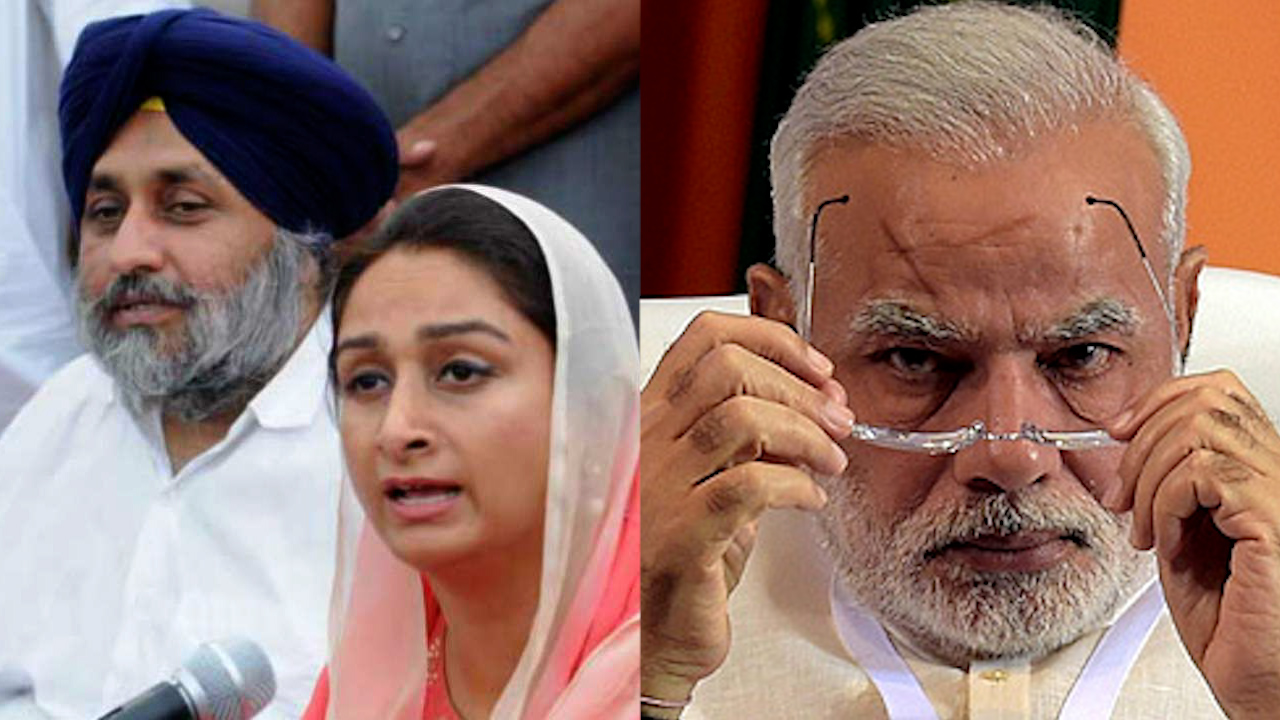Shiromani Akali Dal (SAD), the party which cannot be headed by a non-Sikh as per its constitution, is set to change its ideological stance as it has left BJP led NDA. In the last few years, most of the Khalistani supporter Sikhs moved towards Aam Aadmi Party (AAP) and now SAD would try to win them back. Till now, the party was bound to shun any Khalistani activity as it was in alliance with BJP, however, with the break of the alliance, it has no such compulsion.
SAD emerged as a political party from the youth wing of Shiromani Gurudwara Prabandhak Committee (SGPC), which is responsible for management of Gurudwaras in Punjab, Haryana, Himachal Pradesh and Chandigarh. However, in the Moga conference of 1996, the party shifted its agenda from Panthic (Sikh) to secular Punjabi agenda and shifted the headquarter from Amritsar to Chandigarh to symbolize this change.
In 1997, just a year after adopting the secular agenda, the party came to power in alliance with BJP and Prakash Singh Badal, father of current party chief Sukhbir Singh Badal, became the Chief Minister. In 2002 it lost power to Amarinder Singh but the Badals again came to power in 2007 and remained on CM chair till 2017 when it recorded the worst performance in the last few decades in 2017 assembly elections.
The rampant corruption, drug culture, misgovernance in the 10 years of SAD-BJP alliance rule led to the downfall of the party. People of Punjab were so fed up with SAD that AAP won 20 seats out of 117 in the last assembly election. AAP, a newcomer which was fighting the assembly elections for the first time on the agenda of appeal to Khalistan supporters and corruption free governance, won 23.7 per cent votes and emerged as the second-largest party in terms of vote percentage as well as seats.
The SAD-BJP alliance could win only 18 (SAD won 15 out of 94) seats and just 11.2 per cent of the vote. With this, it was pushed to the third place in the state. Therefore, SAD is nearly over in terms of its political prospects. A party which survives on corruption, hooliganism, and misgovernance definitely has no chance to come to power at a time when India has witnessed most transparent governance at the centre as well as in many states- by BJP as well as many regional parties like BJD, TRS- in the last few years.
Akali Dal continued its miserable run in the Lok Sabha polls last year and won only two seats, despite the fact that Modi wave swept across the country and even the most unwinnable candidates secured victory in many constituencies. Despite the bad performance, the party still secured a cabinet berth in the Modi cabinet.
So, to make the party relevant once again, the Akali Dal would appeal to Khalistani supporters who moved to AAP and helped to make it the largest opposition party. The moderation of two and a half decades would be now put to rest and Khalistani appeal would be made to get votes in the 2022 assembly election.
Therefore, the Modi government as well as the state government of Punjab needs to be careful that the fabric of the state does not get disturbed in the Akali’s hunger for votes. Punjab cannot not afford another phase of militancy like that of 80s and 90s in which hundreds of Hindus were killed and thousands fled from the state in the other parts of the country. Although, the exodus of Hindus from Punjab is less documented compared to that of Kahsmiri Pandits, but the painful account remains in the memory of thousands of migrant Hindus of Punjab.

